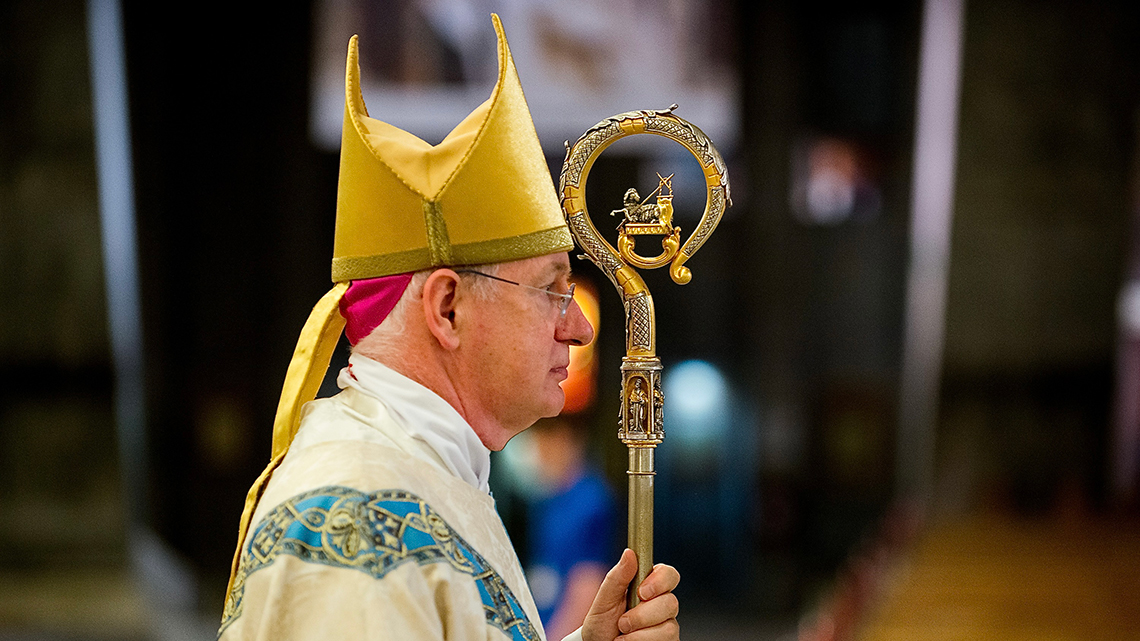The Department for Social Justice of the Catholic Bishops’ Conference of England and Wales has published a document on taxation called 'Render Unto Caesar' that offers perspectives on taxation based on Catholic social thought and teaching.
The bishops' conference highlights that “as far as the Church is concerned, decisions on taxation and government spending need to be driven by human dignity and serving the common good”, while also noting that “questions related to taxation and government spending are hotly contested in the political sphere”.
Bishop Richard Moth, Chair of the Department for Social Justice, in the foreword of the document states: “It may be thought that the Catholic Church should keep out of such debates and leave them to politicians. However, as was said at the presentation of the Compendium of the Social Doctrine of the Church by Cardinal Renato Raffaele Martino: ‘The Church is an expert in humanity.’
“And so, the light of faith, scripture and tradition can and should help us understand better how to address challenges in the area of politics and economics. When entering these arenas, however, the Church’s moral teaching has to be blended with technical expertise and practical wisdom.
“It is in this spirit that the Department for Social Justice offers this new document on taxation. The authors have been chosen to provide a range of views so as to promote debate on, and better understanding of, this important subject.
“All the authors employ Catholic social teaching and their own expertise to help us understand how we can engage in debates about taxation and the role of government in economic and social life.”
The bishop goes on to explain the structure of the document, stating that in the first part, the authors focus more on issues of principle. The second part contains a "set of reflections" in which the authors "look at more practical challenges such as tax avoidance and evasion; inter-generational justice and government borrowing; taxation and the family; the importance of employers paying a just wage; and the provision of welfare".
Discussing the background to the document and its release, Bishop Moth notes that “for many reasons, this is a challenging time for governments across Europe, and difficult decisions may well have to be taken", adding that it "is vital that such decisions are informed by Christian moral teaching".
He adds: “We need the contributions of so many Catholics who work to promote the common good in the world of politics, guided by the Church’s teaching and by careful consideration of the complex issues they are working to address.
“As the late Pope Francis wrote, politics is a ‘lofty vocation’ and one of the highest forms of charity insofar as political activity seeks the common good.”
Philip Booth, Director of Policy and Research for the bishops’ conference, states: "Catholic social teaching sees the role of the state in a positive light, built on the fact that human beings are, by nature, social. Although we express our need for socialisation through many other institutions within society, government has a particular role.
"The right level of taxation for a rich country with an ageing population is unlikely to be the same as the right level of taxation for a poorer country with a large proportion of people working in agriculture or in the informal economy. Pope Leo XIII, for example, warned about the danger of excessive taxation in his landmark encyclical Rerum Novarum (1891) when taxation was around one-fifth of today’s levels.
"However, recent documents on Catholic social teaching have promoted more strongly the idea that the government should ensure that all have access to welfare, education and healthcare and play a role in financing such access."
At the same time, Booth notes, "the state should not necessarily be the first provider: the state should create conditions so that families, the Church, civil society and commercial organisations can ensure that all people have access to what they need for a dignified life."
"Higher levels of taxation may support this objective in some cases and undermine it in others," Booth says. "In recent years, Catholic social teaching documents have both criticised reductions in welfare spending and criticised the impact of welfare provision by the state as being bureaucratic and damaging to society in other respects.
"Once again, prudent discernment is required in the practical circumstances in which we find ourselves. This is one reason why Catholics divide between political parties and have divergent views on the role of the state and taxation."
The document from the bishops' conference comes at a time of increased strain between the British Church and State following the UK Parliament recently endorsing legislation that would legalise assisted suicide and also endorsing legislation that would permit abortion up to birth.
Danny Kruger, the Member of Parliament for Devizes in Wiltshire, recently delivered a passionate speech in the House of Commons denouncing these recent actions by parliament and calling for a Christian renewal to halt the country’s slide into self-destruction.
“We gave our consent to the greatest crime: the killing of the weak and most defenceless human beings,” Kruger said.
RELATED: Danny Kruger delivers Commons speech calling for Christian renewal
Photo: Bishop Richard Moth. (Credit: Catholic Bishops’ Conference of England and Wales.)

















